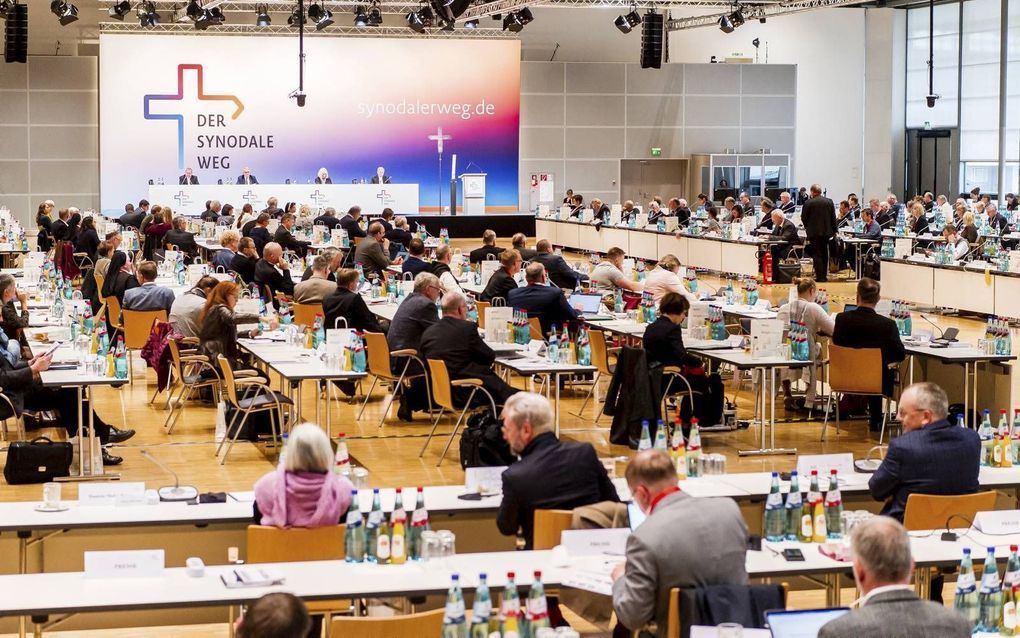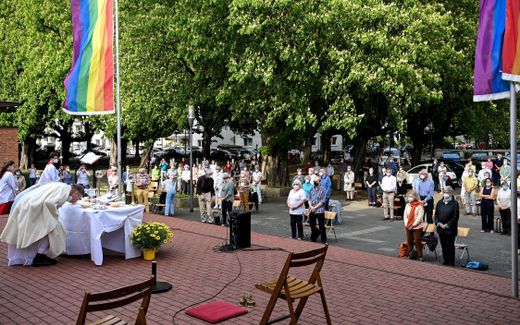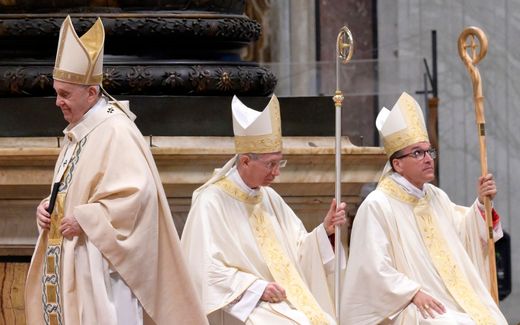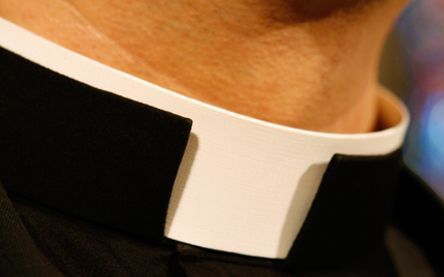Schism looms in the Roman Catholic Church in Germany
10-01-2022
Central Europe
Klaas van der Zwaag, RD

Participants of the "Synodal Way", a platform of German Roman Catholics, who express their wishes about the future of the Roman Catholic Church. Photo Maximilian von Lachner, Deutsche Bischofskonferenz
Central Europe
There is noise coming out of the Roman Catholic Church (RCC) in Germany. According to concerned Roman Catholics, the process initiated by Pope Francis "towards a synodal church" – intended to listen to the voice of all Roman Catholic believers for two years – is used to push forward a liberal agenda. "The church ‘protestantises’: believers autonomously interpret the Bible and reject the authority of the church."
On Wednesday, a group of troubled Roman Catholics united around the "Neuer Anfang" (new beginning) manifesto offered 6,000 signatures to the Pope. They worry that the abuse scandals in the Catholic Church are used as an opportunity to question the authority of the church itself and to openly advocate for ordained women and the acceptance of homosexuals and transgender people.
The German bishops created the "synodal road" in Germany in 2019 in response to the worldwide process in the RCC that will culminate in an international bishops' synod in October 2023. "Synod" from Latin means "on the road together". Germany, however, is going its own way. The 230 members of the platform "the synodal way" debate the following topics: clerical abuse of power, celibacy, Catholic sexual morality (and its rejection of homosexuality in favour of the monopoly of marriage) and women in church services and offices.
The position of women is challenging with Rome. Since the apostolic writing "Ordinatio sacredotalis" in 1994, the infallible teaching has been "that the Church has no authority whatsoever to give women priestly ordination." This does not prevent the Pope from actively promoting the place of women in the church through various appointments. The manifesto also advocates an "important" place for women at all levels of the church, including governing functions. "Their potential is far from exhausted." But there should be no question of ordination in office.
Luther
Remarkably, Protestantism is now pointed to as the culprit of "the synodal way". According to Karl-Heinz Menke, Luther read the Bible autonomously. Menke writes that in the conservative Roman Catholic daily Die Tagespost. Luther's actions subsequently led to the Enlightenment and modernism. The conservative Cologne Cardinal Woelki speaks of the "synodal way" as a "quasi-Protestant church parliament." Protestantism is partly referred to because most Protestant churches in the world have opened all ecclesiastical offices to women, Roman Catholic critics delicately report.

Meanwhile, the manifesto "Neuer Anfang" calls for reformation (it is also called "Reform-Manifest") but is then intended as a spiritual renewal of the church. The initiators feel connected to the "re-evangelisation" of the world advocated by Pope Francis. The manifesto's reproach is that the progressives completely ignore mission and evangelism and only want to promote their agenda.
The discussion has led to a flood of books for and against the "synodal way". In the book "Der synodale Weg. Eine Zwischenbilanz”,Herder Verlag (The Synodal Way. An interim balance sheet, Herder publishing house), proponents say that they are running out of patience to develop innovations and that it is time for the church to renounce its rigid views on, among other things, homosexuality. There has also been a stream of books that regard the "synodal way" as "unCatholic" and "unsocial".
The Netherlands as warning example
It is striking that the Netherlands is seen as a warning example, says the former Curia Cardinal Walter Kasper. The Second Vatican Council (1962-1965) in the Netherlands was seized upon as an opportunity to arbitrarily abolish celibacy during the controversial Pastoral Council of Noordwijkerhout (1968-1970). The bishops offered no resistance, which led to an intervention in the Dutch Church by Rome with the appointments of orthodox bishops, such as Simonis and Gijsen.
Will that happen again? Pope Francis has already made it clear to the German church that a synod is not a parliament where items are decided by ballot. The manifesto warns that Germany's way breaks unity with the universal church and leads to a schism.
Guido Horst, editor-in-chief of Die Tagespost, said in a reaction to the presentation of the manifesto on Wednesday that the Pope received the document "with great interest". "At the meeting, Francis explicitly encouraged the initiative and expressed his wish to enter into a dialogue with the German bishops. Incidentally, the term Protestantism is not intended polemically as disqualification of our Protestant fellow Christians. Some of the "synodal way" themselves flirt with the term "Protestantisation." It is a serious matter: will the Catholic Church in Germany seek its strength in a true reformation, based on Christ and associated with the seat of Peter, or will it become an instrument of purely secular interests? The future of the Catholic Church and a true reform is at stake."
This article was translated by CNE.news and previously published in Dutch daily Reformatorisch Dagblad)on January 7th, 2022.
Related Articles





